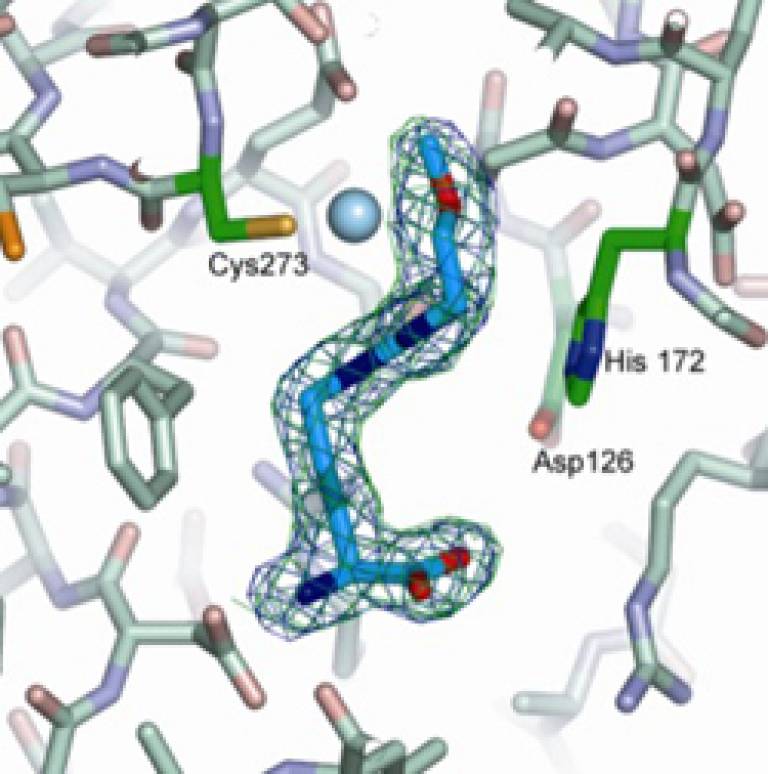£4 million from Wellcome Trust for sepsis drugs development
11 March 2008
Links:
 uclb.com/" target="_self">UCL Business PLC
uclb.com/" target="_self">UCL Business PLC
The Wellcome Trust will invest £4 million over three years from its Seeding Drug Discovery Initiative into a programme to develop UCL's patented series of selective DDAH inhibitors for use in treating sepsis.
Dimethylarginine dimethylaminohydrolase1 (DDAH1) is an enzyme involved in the regulation of nitric oxide (NO) signalling. Researchers at UCL have developed small molecule inhibitors of DDAH1, which may provide novel therapeutics for the treatment of diseases involving excess NO synthesis, including sepsis.
With the treatment of sepsis an area barely impacted upon by pharmaceutical companies, this award has recognised both the urgent need for effective therapies for this condition, and the strong potential of the project team's unique approach.
The most severe form of sepsis, septic shock, occurs following infection and affects a high proportion of critically ill patients. The mortality rate for this condition exceeds 50%. There is clearly an urgent need for effective and affordable treatments, with currently only one drug specifically targeted at sepsis on the market.
Building on a primary series of chemical inhibitors designed and developed at UCL in part under awards from the British Heart Foundation, the Wellcome Trust and UCL Business PLC, Dr James Leiper (UCL Medicine) has assembled a uniquely crossdisciplinary team from within UCL and Birkbeck College, spanning chemical, biological and clinical expertise, in order to fully engage with every aspect of the drug development cycle. The project team is led by the principal applicant Dr Leiper and comprises Professor Mervyn Singer (UCL Medicine), Professor Stephen Caddick (UCL Chemistry) and Neil McDonald (Birkbeck Crystallography).
The Wellcome Trust award and this proactive collaboration of disciplines has allowed the team to develop a detailed three-year project plan for developing UCL's selective DDAH inhibitors into the clinic as an effective treatment for sepsis.
Dr Leiper said: "We are all very excited by the award from Wellcome Trust to support the translation of our basic interdisciplinary programme into the development of therapeutics. I think UCL is ideally placed to foster this sort of programme and brings together expertise in small molecule chemistry, structural and molecular biology, and clinical science.''
Cengiz Tarhan, Managing Director of UCL Business, said: "UCL Business has put significant funding into this high-priority project, and we are very pleased to work with the Wellcome Trust to bring our mutual investment closer to market and to benefiting public health."
Professor Jeremy Pearson, Associate Medical Director at the British Heart Foundation (BHF), said: "With this exciting award, Dr Leiper will be able to take a significant step in developing the findings from his fundamental BHF-funded research towards a new medicine to control the life threatening fall in blood pressure associated with sepsis."
Dr Ted Bianco, of the Wellcome Trust, commented: "When doctors are fighting to save a life, they need all the support they can get. With so few treatment options for sepsis, it's great to back a team like that assembled by Dr Leiper in a bid to turn novel thinking into novel medicine."
To find out more, use the links at the top of this article.
Image: DDAH1
 Close
Close

